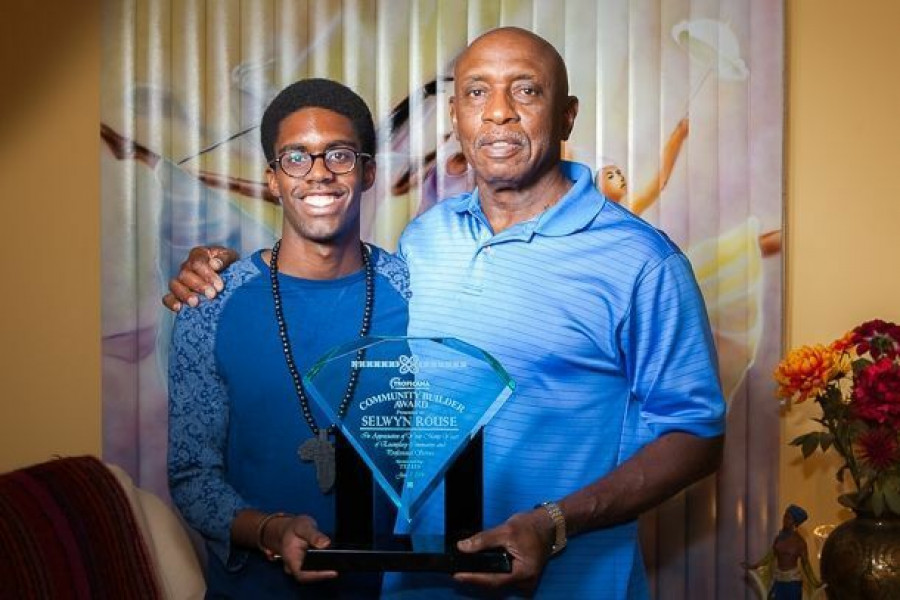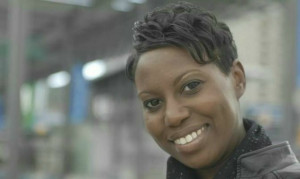Selwyn came to Canada in 1967 at the age of 23 to attend university and graduated from the University of Toronto. After enjoying a rewarding career as a pharmaceutical development technician, which included improving the taste of a well known cough syrup, Selwyn found his passion in tutoring.
For Selwyn, teaching is something that has to go above and beyond a teacher’s normal hours of 9-3 in order to help the child grow as a person. Selwyn believes that in addition to helping children succeed academically it is important to understand them on a personal level in order to motivate them and nurture their self-esteem.
Selwyn is the second of eight children; he grew up in a poor and devoutly religious family in Belmont, Trinidad. When Selwyn received Tropicana's community builder award in June 2014, he thanked his parents posthumously for teaching him and his siblings that "what is important in this life is helping out our fellow human beings" and that if they managed to do that then "everything will be fine."
After you finished your career as a pharmaceutical development scientist, what made you decide to go into tutoring?
Actually, I started tutoring long before I became a pharmaceutical scientist. When I was in high school, I was approached by a relative who asked me to tutor their three kids. So back then the seeds were sewn when I was 17. How I got into tutoring was back in 1990, through my brother and some other teachers. They had observed that black students weren't doing well in school and they decided they were going to start a program on Saturday mornings so students could come get help.
It was September in 1990 when my brother approached me: I said to him "Joseph, I am no teacher" and he said "No. But you're a father, with three successful children, therefore you are an educator". So I went out in October of 1990 and I haven't stopped tutoring since. And I said to myself "why not". Well I have three kids, and the same way my parents pushed their eight children, telling us that education was going to be the vehicle by which we were going to move from socio-economic poverty to a standard of living that would allow us to live "the good life". That was the driving force that told me "no Selwyn, you can't walk away from these kids." Now it has become a part of me. Because of what I've seen, in the context of meeting young people and tutoring I have decided to dedicate the rest of my life to helping kids.
How do you push your students to want to be there?
You have to find a way to motivate kids and I think that's the biggest challenge of tutoring. First of all, you have to get some idea of what is this kid really all about? When I'm tutoring, one of the first things I do is have the kids fill out a 20-question sheet and I ask them to be quite honest in their answers; the worst thing any human being can do is fool their own selves. So I first ask 'do you like school' and the last question is "if you had three wishes what would they be?" One boy told me he wanted to play in the NHL, and I told him "if you want to play in the NHL, you have to change your answer to number one" because the way to the NHL is through the American college system.
In addition to the subjects you tutor your students in what else do you think is important for them to learn?
I have a term I call mentoring; It's something quite apart from tutoring. Tutoring is more academic whereas mentoring has to do with your overall development as a human being. One of the things I think is happening in certain areas in the black community is that young black males are not necessarily getting the kind of direction that they need. I think that every black male should have a black father figure to look up to because every adolescent male needs to hear the growl of testosterone. So mentoring is a very important part of my tutoring of young males. I want to use my experience to point out to them that yes your academics are good but how you treat other people is important as well. This is something I work feverishly on in addition to tutoring.
When you come across students who are hesitant to accept tutoring, how do you get around that?
It's a very complex situation. You have to try and understand why these kids are the way they are. Is it because of the environment they're in? There are kids who face tremendous challenges just in terms of their home situation; and that's no fault of their own. You don't want to turn those kids off or show them any less interest. Through experience you come up with different methodologies to help them realize that everything that I'm doing here is all in your best interest.
Do you have any suggestions on to how to improve the environments of kids so that they can thrive?
At the community level, where home does not provide the appropriate environment, you hope that through the community there are programs that can help pick up the slack. If the schools work in conjunction with community programs, they can help them. I think the whole question of discipline doesn't exist in the school system. The school system seems to me an institution where academic information is passed on, students are expected to assimilate that information and if they behave poorly the school suspends them. They get them out of the way. They're not disciplining in the schools and I think that's part of the problem.
Is creative expression or having some alternative outlet something you recommend to your students?
Oh, all the time. I always tell the kids that they should have some interests outside of school. Whether it be creative expression, sports, or a hobby. I think extracurricular activities are an important part of one's overall development. Yes, as a young person education is important but I also think it has to be complimented by other things will also aid in your overall development, so I always encourage kids to find an activity.
When a kid comes through your tutoring program how do you know when that student is done and they don't need you anymore?
In a one-on-one situation it can be intimidating so the first thing you want to do is make the student feel comfortable. I tell them "I'm not your teacher from school" and you wouldn't believe how much that relaxes them. I think as human beings we naturally want to do well, but I think we have to be brought to an understanding as to why we want to do well. We tell the kids or their parents to bring whatever work they’re having difficulty with and we bring them to a point of understanding. Once a kid starts doing better, their overall confidence grows.
Do you have any last thoughts or anything else you'd like to add?
My wish is for every kid to realize, that no matter who they are, when facing the future challenges of life, the one thing that gives everyone an equal opportunity to get to the places they want to is education. I wish that every child, particularly every child in our community, would recognize that and to be equipped with education to meet any challenge they may face going forward. If anyone had told me that this young, poor boy from Belmont would end up standing on the banks of Lake Louise, looking at the Rocky Mountains (which I’d read about in the Student's Companion back in Trinidad) I never thought it would've happened. But the medium that got me here is education. Education; you just cannot beat it. It is the great equalizing factor of the earth.
24 years after Selwyn began tutoring, he is still at it today. Selwyn currently lives in Ajax with his wife and has been tutoring children in his community through his private tutoring business for the last seven years.

 By
By 








